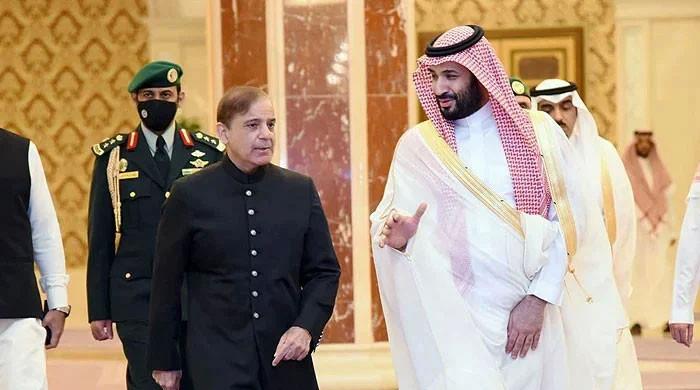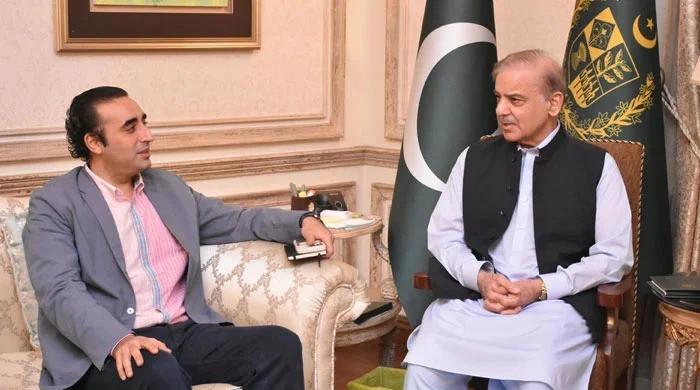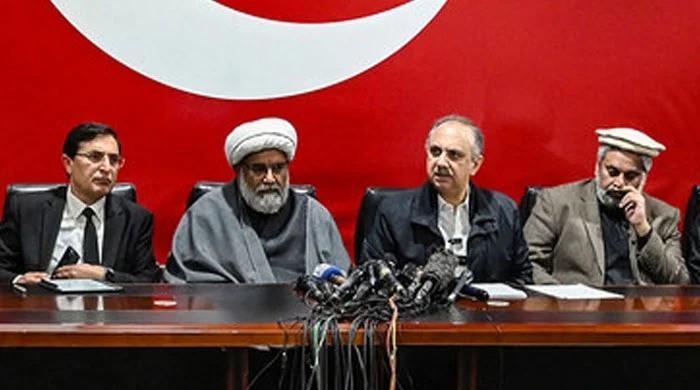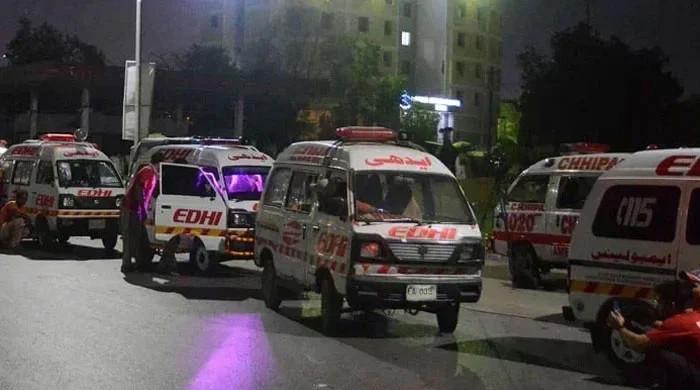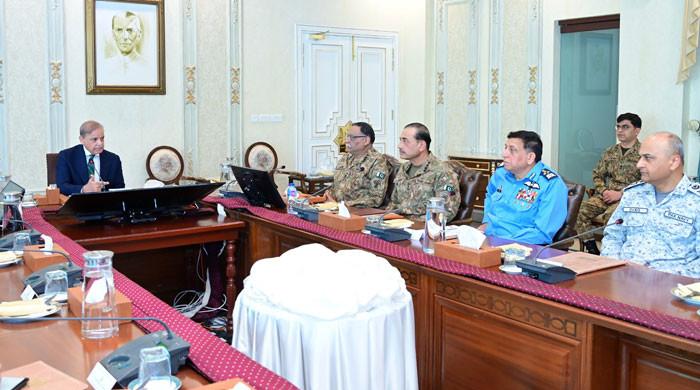Imran Khan 'still PTI chairman' as ECP issues details of political parties
PTI founder Imran Khan still listed as party's chairman, despite Gohar assuming charge after intra-party polls
December 21, 2023
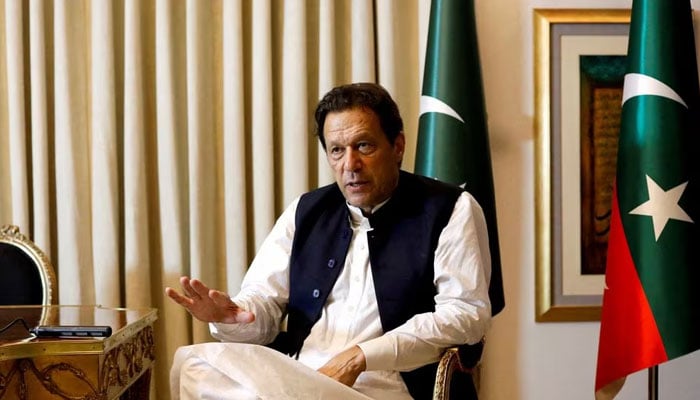
- Imran still listed PTI chief, despite Gohar assuming charge.
- GDA is the only political alliance to contest elections.
- Polls are scheduled to take place on February 8, 2024.
ISLAMABAD: The details of political parties enlisted with the Election Commission of Pakistan (ECP) were issued five days after the issuance of the election schedule, The News reported on Thursday.
The ECP, in a briefing to the press, stated the enlistment of 175 political parties and one alliance concerning their participation in the upcoming general election, scheduled to take place on February 8, 2024.
The Grand Democratic Alliance (GDA) will be the only political alliance to contest the general polls under the leadership of Pir Pagara Syed Sibghatullah Shah Rashdi. The ECP also notified a change in the name of Pakistan Tehreek-e-Islahat (PTI) to Pakistan Tehreek-e-Insaf Parliamentarian (PTIP), which is headed by Pervez Khattak.
According to the ECP list, Pakistan Tehreek-e-Insaf continues to be led by Imran Khan, despite Barrister Gohar Ali Khan being recently elected as its new head. The issue of PTI’s intra-party election conducted on December 2, 2023, remains undecided, as ECP reserved its judgment after hearings.
Shehbaz Sharif is the head of Pakistan Muslim League Nawaz (PML-N), whereas Asif Ali Zardari leads the Pakistan Peoples Party Parliamentarians (PPPP) and his son Bilawal Bhutto Zardari is the chairman of PPP.
Likewise, Khalid Maqbool Siddiqui heads Muttahida Qaumi Movement Pakistan (MQMP), Abdul Aleem Khan is the president of newly-formed Istehkam-e-Pakistan Party (IPP), whereas Asfandyar Wali Khan heads the Awami National Party (ANP), Sardar Akhtar Mengal is the president of Balochistan National Party (BNP), Maulana Fazlur Rahman is the ameer of Jamiat Ulema Islam (JUIF), Sirajul Haq is ameer of Jamaat-e-Islami (JI), the National Party is headed by Dr Abdul Malik, veteran politician Chaudhry Shujaat Hussain is the president of Pakistan Muslim League (PMLQ), Mehmood Khan Achakzai is Chairman of Pakhtunkhwa Milli Awami Party (PkMAP), Majlis-e-Wahdat-Muslimeen (MWM)is headed by Allama Raja Nasir Abbas and Sheikh Rashid Ahmad heads Awami Muslim League (AML) as per the ECP list.
Meanwhile, a spokesperson said the decision of a two-member bench of the electoral body regarding the delimitation of Hafizabad district was issued on November 26, 2023. And, after the direction of the Islamabad High Court, the second order of the five-member bench was issued on December 8, 2023. He explained that both the orders had been uploaded to the ECP website and that its purpose was to provide awareness and guidance to the public about it.
Separately, he said that some misconceptions were being spread in the media about delimitation. The rules of delimitation under the Elections Act, 2017 and rules are clear, the details of which are given below:
2. In the second phase, the quota extracted under Rules 8(2) is divided among the population of the district for the determination of seats of the districts, thereby determining the seats of that district. In this, if the remaining population is less than 0.5 after giving full seats to a district, then it is ignored. If the population is more than 0.50, then it is given one seat, for example, if according to the population of a district, its share of seats is 4.49, then it is given 4 seats. If its share of seats becomes 4.52, then that district takes 5 seats, provided there is no other district whose fraction is higher than that for example, 4.56.
It is necessary to specify that the first seat will be given to the district whose fraction is the highest i.e. 4.80, 4.75, 4.70, 4.66. If there is a seat in the province, then a district gets a seat at 4.50 and if the seats are eliminated keeping in mind the fraction and the lower fraction, even if it is 4.51 or more, it is ignored.
“The procedure for determination of seats is clear in Section 18 of the Elections Act, 2017, Section 8 of the Elections Rules. The Election Commission cannot make any changes in it and this work is done by the entire Commission (Chief Election Commissioner and four members of the Election Commission). However, due to the high number of objections to the initial delimitation, they are heard by the Election Commission or three-member benches,” he explained.
The electoral authority, he noted, also wants to clarify that Hafizabad district has a population of 1,319,909, while the quota of one seat of the National Assembly is 905,595, which is 1.46 because under Rules 8(2), the rest of the population is less than 0.5, so one seat is allocated. In this way, the population of Gujranwala is 4,966,338 and, according to the above quota, its share of seats is 5.48; its fraction is also less than 0.5, so it has also been given 5 seats.
The ECP also clarified that according to the law, the commission was not obliged to club any district with another district.





